The Childhood Struggles of INFPs
INFP children are some of the most emotionally rich, creative individuals you’ll ever meet. Their strong personal values, philosophical nature, and insightful way of viewing the world make them stand out from the crowd. They are seen as sensitive souls and are often more on the quiet side as children. Myers-Briggs® expert David Kiersey calls INFPs “The Healers” and it’s not hard to see why. They long to make the world a better place, especially for their family and for the people they care about. They are known for “championing” the downtrodden and taking up causes for the underdogs of the world. There are so many admirable qualities about INFPs, yet as children, they often face a unique set of struggles.
Want to know what your child’s type is? I have created a personality test to help you figure it out. Just remember this should be used as a guide and not definitive proof of your child’s type.
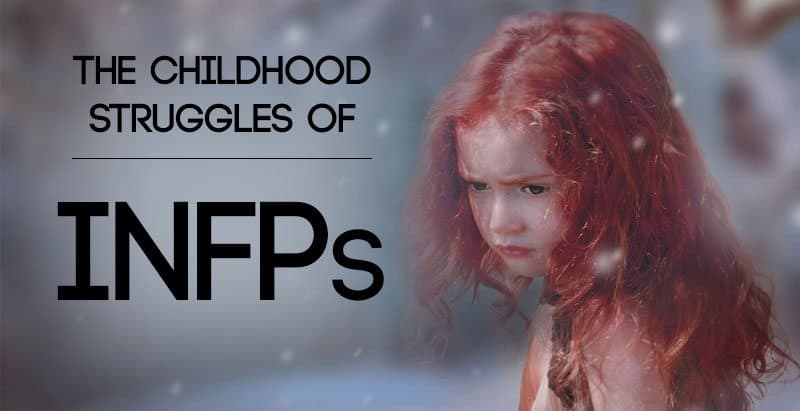
The Childhood Struggles of INFPs
INFP Children Feel Things Deeply
All children feel things deeply at times, but INFPs are especially sensitive. They are dominant introverted feelers; so their emotional lives are extremely important to them. They long for harmony and believe that everything has significance and personal resonance. Casual belittling comments, sarcastic jabs, or frustrated offhand glances can deeply unsettle the INFP child. Don’t mistake me. Many people confuse this sensitivity for weakness – it is not. Because of their sensitivity, INFPs make excellent counselors, and they are often selfless in their endeavor to make the world a better place. Joan of Arc was an INFP and I’ve never heard anyone call her a wimp!
Sadly, this emotional sensitivity and the strong idealism of INFPs can leave them feeling confused and shocked by the corrupt nature of the world. Schoolyard taunting, news headlines of war and famine, and often being told to ‘toughen up’ can make young INFPs feel that they aren’t meant for this world. David Kiersey says of INFPs, “Isolated by their seclusiveness and infrequency (around 1% of the general population), their idealism leaves them feeling even more isolated from the rest of humanity.” He goes on to say that they often experience a feeling of alienation which comes from an often unhappy childhood. They are dreamers who fantasize of a better world, who aren’t as skeptical of magic and ‘impossible’ realities. This love of fantasy and the intangible is often discouraged by parents and peers who may belittle the INFPs sense of wonder and imagination.
INFPs are extremely aware and sensitive to tension and conflict around them and become very upset when the ones they care about are angry or unhappy. They are gentle souls who aren’t harsh themselves and don’t respond well to harshness in others. Yelling and strict punishments are especially traumatic for the young INFPs. Because they are so private, they may not readily share their feelings or emotions with others, but bottle them up inside. They feel unable to share these intense feelings unless they are with someone who has gained their absolute trust. At the same time, they often feel things so deeply and intensely that they may react by crying very quickly. This often bothers and annoys them, because what they feel is so personal and deep and they don’t want the whole world to see it. For this reason, they may escape to a sanctuary like their room or closet to let their feelings out in private. Being told to ‘toughen up’ or to ‘stop being a crybaby’ is a harsh, damaging experience that many INFPs (especially male INFPs) have had to deal with. Their rich emotions should not be something they are made to look down upon or be ashamed of.
INFPs REALLY Listen
INFPs have an abundance of compassion and empathy. Their awareness of the meaning of things, their attentiveness to even the slightest of changes in someone’s tone or intent makes them excellent listeners. Dario Nardi, a UCLA professor and expert in the field of neuroscience said that INFPs are the consummate listeners – “They thoroughly engage all brain regions that process voice, words, and sounds; moreover, they may easily enter a unique whole-brain state when listening to other people.” He noted that most other types are eager to think up their own responses or arguments while someone else is talking, and only half-listen most of the time. INFPs are a different story. They will give you their entire attention and not worry about a response until they’ve heard you out fully. Their skill at listening and tendency towards introversion can cause people to push them to open up more or extravert more. Extroverted parents may feel that they need to force their child into more social situations and try to get them to talk more, leaving the INFP child feeling that there is something wrong with their thoughtful, quiet nature when in truth we could use a lot more listeners in the world.
INFPs See Creative Opportunity Everywhere
INFPs are often drawn to art and storytelling. They love fantasy and being allowed to be fully creative and spontaneous. This spontaneity and imaginative way of thinking can be seen as a problem by a highly SJ-geared learning environment. The majority of K-12 teachers are SJ personality types who learn through memorization and repetition, and they teach to this learning style as well. They also place a higher value on ‘practical’ subjects like math or English, and less on the creative pursuits of art, music, or theater. While INFPs can excel and even enjoy math or English, they learn better through creativity, imagination, and storytelling and get frustrated with memorization or repetition. During class, their imagination tends to wander to more personally meaningful topics or imaginative ideas. They get bored with routine and structure and want to be more inventive with their learning. They question the meaning of things and often see many alternative paths to learning and discovery. Because of this, they are often reprimanded in school for not paying attention, for not doing things ‘by the book’ or for getting distracted. In some cases, they are misdiagnosed with ADD because their imagination wanders to so many other areas.
On the other hand, in school INFPs are the third or fourth most likely to receive the “gifted” label. Certain teachers can see their creativity, their gift for language, and their curiosity and hone into that and the INFP can be intellectually unstoppable. Having the right teacher is especially important for an INFP child.
In Conclusion
As you can see, INFPs are often very gifted children with a knack for creating, empathizing, and understanding. If you’re parenting an INFP, try to be especially sensitive in handing out criticism or punishment. Try to do this privately, as INFPs are very private and will be shaken by public criticism. Try to praise their emotional intelligence, empathy, and compassion. Give them outlets for their imagination with plenty of opportunities to write, draw, read, and play make-believe. In school, help them to keep track of their homework as they tend to have harder time meeting deadlines and staying on task. Lastly, be honored that your child is one of the rare 1% with the deeply creative INFP personality.
Find out more about your personality type in our eBooks, Discovering You: Unlocking the Power of Personality Type, The INFJ – Understanding the Mystic, and The INFP – Understanding the Dreamer. You can also connect with me via Facebook, Instagram, or Twitter!
Other Articles You Might Enjoy:
10 Things You Should Never Say to an INFP
10 Surprising Truths About INFPs
Sources (These are referral links):
Neuroscience of Personality: Brain Savvy Insights for All Types of People
Nurture by Nature: Understand Your Child’s Personality Type – And Become a Better Parent
Type Talk: The 16 Personality Types That Determine How We Live, Love, and Work
Gifts Differing: Understanding Personality Type
Get Your Free eBook!

Subscribe to our newsletter and get an eBook packed with powerful parenting tips for each personality type! Enjoy 28 beautifully illustrated pages exploring the needs and strengths of all 16 personality types in childhood.


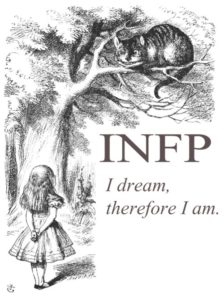
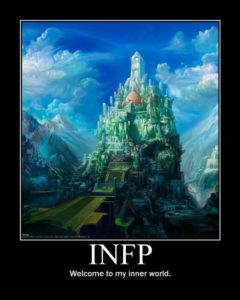
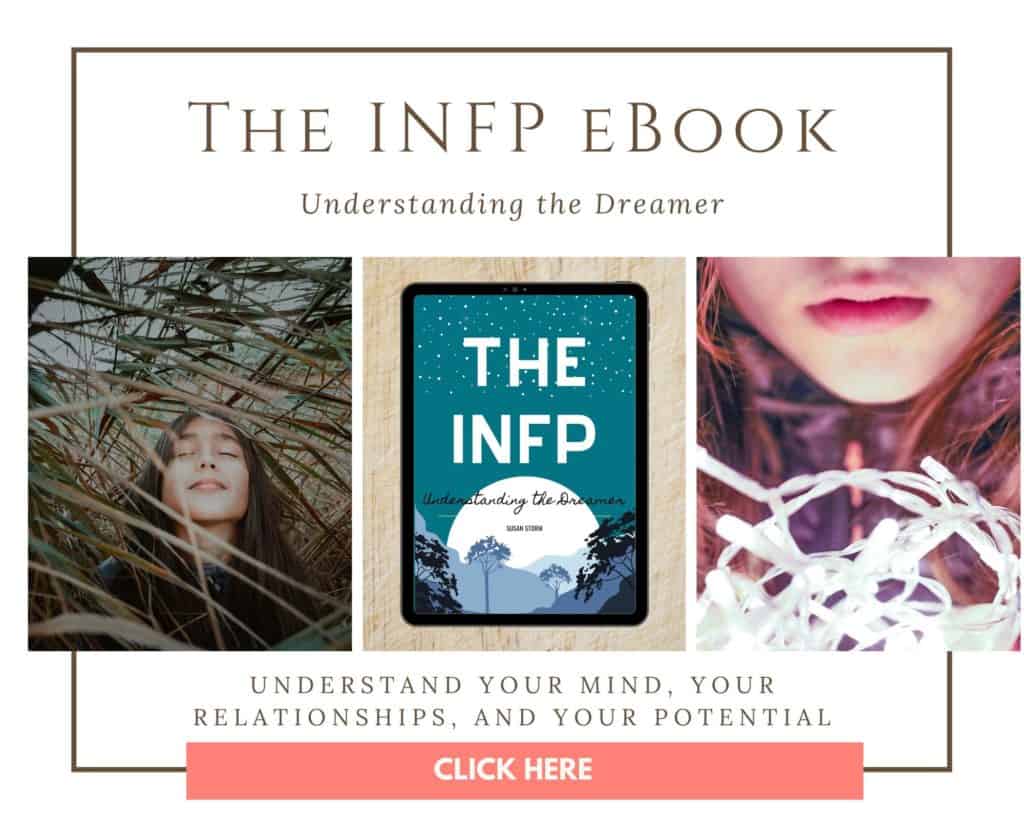
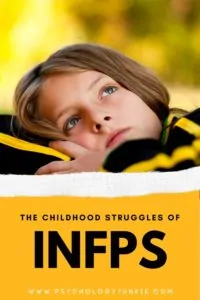


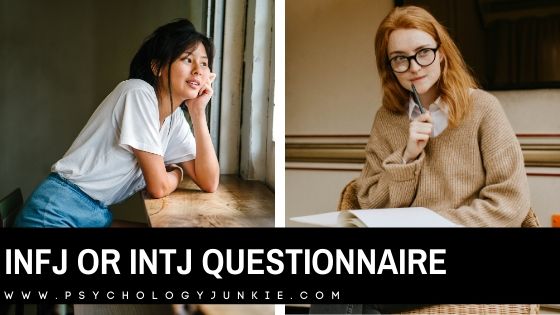
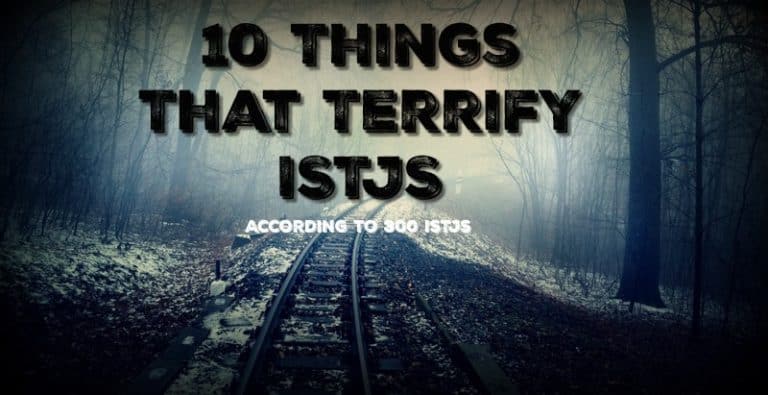
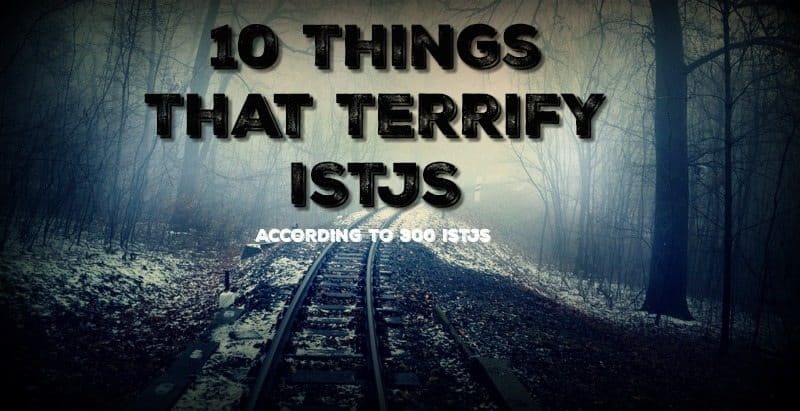
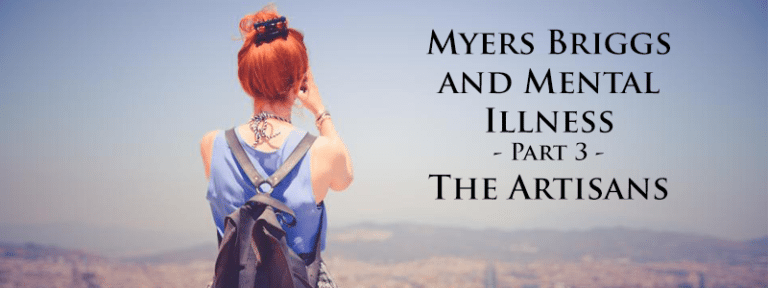
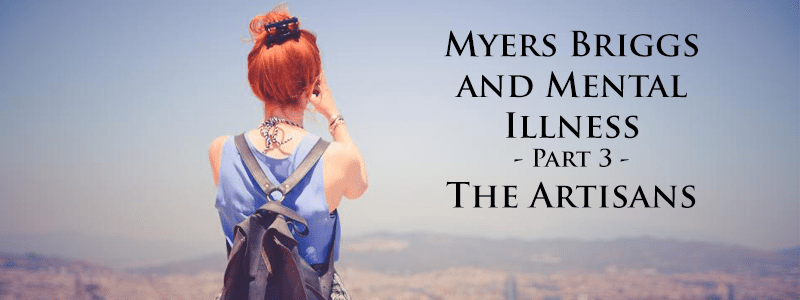
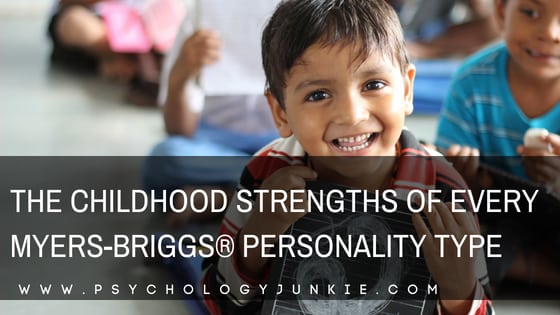
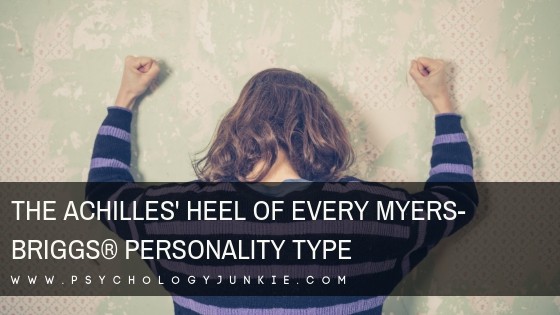
Very good article Susan. Fellow INFP. see you in INFP at fb
Thank you so much! Sorry about the confusion with the comments 🙂 Now I see what you were talking about!
Hi Susan,
Absolutely love your blog! The content you provide is so helpful and insightful. My daughter is an INFP personality type and I an INTJ. (I’m sure you can imagine the heated conversations we have in our home at times). :-).
All that you’ve written resonates with how she experiences life and the struggles that INFPs encounter are real yet often invalidated. The isolation has been one of the hardest things for her to deal with to the point where at the age of 11 she shut down her voice and was diagnosed with selected mutism, at that point she had to be home schooled for 2 years while we worked on building her inner security.
I read your posts to her. She takes it all in as she nods and smiles in agreement! We both know that she has a bigger purpose in the future when she is ready, around the healing of our natural environment and the wildlife, but until then your posts are very helpful in the empowerment of her own inner truth and self-concept…so many thanks and blessings for your brilliant work!!
Wow! Thank you so much. I feel so honored that my posts have been helpful to you and your daughter. She sounds like an amazing person, and it sounds like she has a lot of incredible dreams and goals for her life. We definitely ned more people who want to heal our environment and wildlife. That is amazing, I would love to hear more about that. I am so sorry that she has had to struggle with feeling invalidated and isolated – I know that can be incredibly difficult. I hope that she continues to improve, and I’m sure that your love and support is helping a lot. Many people just don’t try to see things from their children’s perspectives, so she is very lucky that you care so much as to try to find out more about her personality and how to help her. Thank you again for your encouraging feedback, it totally made my day. I would love to hear your thoughts and comments in the future 🙂 Have a great weekend (what’s left of it!)
I can’t agree more with this post. Thank you so much for say out loud I’ve been hiding in my mind for many years. It’s a relief to know there’s someone else feel the same way as I do.
I can’t agree more with this post. Thank you so much for saying out loud I’ve been hiding in my mind for many years. It’s a relief to know there’s someone else feel the same way as I do.
I’m so glad that this post was an encouragement to you, and I appreciate your feedback! I hope that you don’t feel that you have to hide, but that you have good friends and encouragers around who appreciate you.
Susan, I just stumbled across your site today and was very excited by it. I am an INFP and just recently became very interested in figuring out what that means for me. Everything that you wrote about INFP’s struggles as children was true to my childhood. While there were many struggles that I faced by being so introverted and feeling things so strongly, there are a lot of gifts that I am thankful for with my personality type. I have always loved reading, writing, and drawing. My greatest dream as a child was to write and illustrate a book one day (a dream that I still hold today). I have always been a great listener, which is a skill that my mostly extraverted friends tend to gravitate towards. I would agree that one of the only times I am fully able to engage every part of my senses and attention is when listening to others. I am currently working toward a master’s degree in counseling psychology, an area I have been drawn to for many years and feel that I can excel in. I still struggle in classes that don’t seem to matter to me personally (such as statistics). As a child, I did pretty well in school, but struggled in math classes where I would find myself drawing and making up stories. Although I consider myself a decent writer, it is difficult for me to find motivation to write about anything that isn’t important to me. I know I’ve been going on forever, but I just wanted to let you know that your blog is one of the best resources I’ve found that truly touch on what the experience of each personality type is really like. I can tell that you put a lot of time, effort, and passion into your studies, which is very meaningful to INFPs!
Thank you so much for your comment! It means so much to me. I think it is wonderful that you are going into counseling psychology – I have always wanted to do that and am trying to study psychology as much as possible on my own until I can afford college classes:) I am looking forward to reading your book when you get it done! Please don’t worry about ‘going on forever’, I really enjoy reading long comments:) It’s great to know how people have experienced life, and what resonated with them in my posts. I deeply admire INFPs, especially for their listening skills – it’s good to actually hear them speak though, too 🙂
Thank you for tnis article. As an INFP (admittedly with a very high J as well) a lot of what you’ve written really resonated. True to type, parts of that I felt physically. It brought back real feelings of generally being a square peg in a round hole world. Wow. Quite intense at 3:46am. I think I just felt so undervalued and wrong as a child with my SJ parents well meaning attempts to “bring me out of myself”. Childhood and teen years felt mostly like my skin was being peeled off.
Oh, this is great,
I wish my parents had read this article, I would have escaped the trauma I have gone through in my child hood.
I’m sorry that you went through trauma growing up – that’s one of my motivations for writing posts like these, I hope it will help some people to realize the differences in children and to be a little more understanding. I’m a mother of three going on four, and it’s hard to do sometimes – but very worth it.
I am a 50+++INFP so to be able to “look back” on my childhood through your words helped me fill in some gaps. Virtually, everything you said was true for me and the pain and heartache I felt as a child now makes sense. I, too, was a square peg in a round holed world but I am using my gifts to help and cheer students on at the college level. I am loved as a teacher and I am a great listener. March on fellow INFP’s while we hold hands (from a distance) and love on the world!!
Thank you for responding, and for giving me your feedback!! I’m sorry you dealt with some of the issues I mentioned in this post, but I also admire that you have been able to make a difference in the lives of your students and show them support!! That’s a huge deal! Thanks again!
very good indeed..as an infp as a child I was physically mentally and sexually abused..and the pain was so bad that I hid from everyone as a child..my fear was who’s gonna hurt me next? and I was picked on in school which didn’t help..but I am thankful that I held on to my positive outlook on people thanks to a few who where there for me as a child and I did go through a really rough patch as a teen but I held on and so glad I did..lets just say a very depressed infp can be very dangerous to themselves..so here’s to hoping that this reaches the masses because i’d never want a child to feel as alone as I did….
I am so sorry that you experienced such abuse as a child – I can’t imagine living in that kind of fear from day to day, and not being able to escape it at school. I was sexually abused as a child, but I still had family members who were there for me and I felt safe around. You’re very brave to be able to talk about it and keep a positive outlook; I am inspired by you. That’s not an easy thing to do. I still struggle from day to day with recovering from the aftermath of ongoing sexual abuse. I hope things will only get better for you, and that life has many wonderful things awaiting you. Thanks for reading and for sharing, it means a lot!
Thanks for the INFP validation! Everything you wrote rang true for me growing up INFP. Became a therapist! Surprise?
Thanks so much for reading and for sharing your thoughts! It’s so cool that you are a therapist now and able to help other people in that way 🙂 I have always wanted to do that!
This article was so accurate that I cried while reading it. Such an infp thing to do right? But really, finally being completely understood feels wonderful. Thank you for this! This article made me appreciate myself. 🙂
Thank you Azwaa for reading! I’m sorry that you cried, but I’m glad you felt understood by reading it. I love INFPs and I always hope my blog posts do them justice. Thanks again for commenting and sharing your thoughts!
This beautifully written article has brought me to tears but it’s exactly what I needed. My inner child finally feels accepted and understood…. Thank you from the bottom of my heart!! Xx
I’m an INFP and just like other commenters, I also teared up while reading this hahaha. Honestly though, I feel like this explains so much about why I was the way I was as a child! The only thing that isn’t accurate is that I have actually always enjoyed memorizing things. It feels like a game to me. But that could be because I don’t score that highly on “feeling.”
Thank you for reading and sharing your thoughts on the post! I definitely think there can be variations within type based on so many factors like environment, unique traits, etc,. when I took the MBTI certification course, we learned about a Step II MBTI test which goes more in-depth with determining type and also areas where a person is not ‘true to type’. There are different facets that relate to each preference (sensing, feeling, intuition, etc,.) and you may be feeling on four out of the five facets, but score thinking on one. This is what I love about the Myers-Briggs test, is that they really are trying to understand how each person is unique and just fit everyone into uniform boxes 🙂
This is so accurate!! I’m very interested in learning more! My childhood was difficult. I never fit in. And I began to suffer from depression at a very young age. My sister always tried to “toughen me up” and it did make me feel as though something was wrong with me. I was also a very nervous child and was diagnosed with ulcers at six. Now, thanks to you, I have some understanding why I was so sick…
Like many INFP’s I cried reading this. It’s amazing to hear that I’m not insane. I was just misunderstood by people. Especially with being a male, it’s very hard on me. Having my childhood validated is an amazing gift from you wonderful people.
I’m so glad you enjoyed the blog post and felt more understood. I do feel that INFPs often struggle with being misunderstood as children, especially males. However, I do wish there were more in the world! INFPs are incredible people 🙂 Thank you so much for commenting, means a lot to me!
oh yes, It was soo.. me as a kid! yet I must disagree with maths, I never liked it and always had struggles with it. my parents had to pay someone to teach me it ;( I felt like my teacher could not teach me anything.. but still.. English I liked much better! might be that other teacher would make a difference, but my teacher from math was so annoying! I could not help it.. also mbti test told me Im Infj, but I feel more like Infp, now even more after reading your arcticle, how could that be?
Wow. This was my childhood. It just hits right at home. Growing up with ISFJ parents was hard but I feel without them I would’ve just done “nothing”.
As an INFP child, I felt like I was in the wrong family and wished for parents who understood me. Maybe because they could not understand me, I have always felt family-less.
My gift and curse is my empathy. I ended up becoming a psychotherapist. I can truly understand my clients.
Its so important for me to have lots of private time so I don’t lose myself in other people’s feelings. I used to think I was a hermit due to my need to recharge my batteries after spending time with people. Yes, I feel things intensely but don’t like to show it. Right now I am feeling heart broken because my extroverted sister is not speaking to me and I don’t know why.
I always hated when my mom would say, “Stop crying or I will give you something to cry for”… I’ve always been a very emotional and sensitive person.
Another thing I just can’t help doing is giving advice/counseling people. I thought about becoming a counselor at one time, but was afraid it would stress me out being exposed to other people’s emotional pain. I still give advice to people or try to bring a heartfelt and profound perspective to difficult subjects. I’ve always felt that I see things differently than other people.
I am also left-handed, so I am prone to creative and holistic thinking. I was always on the honor roll and in the gifted program in grade school, but had a melt-down if I didn’t get an A or B or later in college I would drop the class. I had a bit of a perfectionistic thing going on…
As an INFP child, this describes me so well. I read what you mean as being misdiagnosed as ADD, and I read the symptoms of it before I read this article, and I understand why I thought I did. Also, as many other readers did, I did cry. I feel like someone finally understands why I feel this way. Thank you so much for this article, you changed my life. (;
Thank you so much for your very kind response! I am so glad if this post was helpful to you – that is my biggest goal, to help people feel more comfortable and understanding of themselves. I hope that you find many people who understand and value you for who YOU are as an INFP 🙂
This is from a friend who is also an INFP.
This article describes me so well. I can completely relate to almost all that stuff that you mentioned. Thank you so much for writing this, I’m so glad that someone knows how it feels.
I’m so glad that this article was an encouragement! Thank you for taking the time to read it and let me know your thoughts! I really appreciate it.
I have on and off again for years been trying to figure out if I’m an INFP or INTP, the INxP was very clear to me, but F or T have I really struggled with. I know that I have a strong Fi but I also think that I have a strong Ti, constantly analyzing and trying to find out how things work, loving logical puzzles. My favourite subjects in school were the natural sciences, and I now have a degree in Analytical Chemistry.
This post though, oh dear heavens, this post. I don’t think I have ever read anything that is so accurate and fitting to my own personality. This is my childhood in a nutshell (apart from not being fond of things like maths or science). Like many of the other commentators, I teared up a bit over this post, over that feeling of being understood and seen.
Being a quiet, sensitive and curious kid with a very vivid imagination, struggling with anxiety and depression from an early age, I was so often told to toughen up and “it’s not that bad, it’ll go away” when I expressed worry over something that it made me try to supress how I felt and I tried to conform. Last year I got to the point where I couldn’t handle it anymore and finally got help and medication. Now I feel like I can handle myself and the world around me so much better, than before I got my medication. (My doctor described my anxiety as diabetes in the brain, it’s a chemical inbalance. I quite like that one, it’s so much easier for peolpe to understand when I tell them.)
Anyway, this post made me realise that I really am an INFP, it was just too spot on for me to be anything else. I may be a logical, analytical and curious INFP, constantly being in awe over the peridical table and seeing the beauty in quantuum physics, but I definitley am an INFP.
Thank you, Susan, thank you for this.
You may have scored close to the T. 🙂 Remember that each idealist will look a little different according to their scores. I also think that the study of complex systems can drive the love of certain fields of science for some idealists. The creative aspect of analytical chem (e.g., improving methods), I imagine, can be a draw too.
Susanna, I felt exactly the same way. Reading this made me cry, something that rarely happens as an adult (unless someone else is saying something sad about their own life – empathy – a blessing and a curse!). I don’t even know why I clicked INFP; I have always identified as an INTP, although the F/T line was/is double-humped for me. I’m an Environmental Chemist so I had to respond. I loved creative writing as a child but excelled in math. I’m looking to pivot into Data Analysis for my next career change. My feeling side is very strong but I hold it close to my chest. I so identify with never wanting anyone to see how I feel and being told to get a thicker skin. I am reading this blog today in my quest to practice some self care. Thank you for the resource, I trust I will be exploring it more.
OMG! That describes my life – literally all of it! Childhood was painfully hard. It also explains why I never saw eye to eye with my Dad. He was all about yelling, and belittling comments, and punishment. I hated him when I was a kid. Now I know he just couldn’t relate to me. The damage had already been done tho 🙁
I am so sorry you had to deal with so much anger and criticism as a child! That is really rough, especially for an NF type. I’m glad that you found some solidarity here!
I am a 13 year old and I am an INFP, this website is amazing, I haven’t been able to get off of it! My sister is the NF type and I feel I can open up to her about anything. I was once mistaken for ADD, I have a very bad memory, and I am also very artistic/ creative. I have always been very frustrated with myself in thinking I was maybe to kind or that I was the only one who could understand me. This website has inspired me, I feel more confident with myself because I know so much more! I always thought I had loss memory…
I really want to meet someone with the same personality as myself so, I am going to do an experiment in school to see if anyone does. Thank you for taking your time to make this very helpful website!
Hi Abygale! Thank you so much for the kind words! I’m so glad you are enjoying the site and finding helpful information! INFPs are wonderful people and you have a lot to offer the world. I think a class experiment on type sounds like it would be fascinating! I hope you are able to find some like-minded individuals to connect with 🙂 Thank you again, your comment has made my day!
I had tears reading this, thinking of my childhood and how hard it was to try and explain to my parents that I wasn’t the horrible person they said I was, and that I didn’t understand why they were so harsh. Dad was an ESTJ and Mum a friendly but no-nonsense, strict ESFJ. I was constantly scoffed at and told there was something wrong with me and that I needed to toughen up. One ogre of a male teacher would taunt me and hit me with his ruler (it was okay in the 80s, apparently), making me sob uncontrollably in class, but because fear showed up as better grades, my parents made sure I had him again a few years later. They laughed at my horrified response.
I LOVED Anne of Green Gables and how the adults fell in love with her so dearly. I used to dress like her (in a flower-girl’s dress and my baby sister’s bonnet) and walk around the yard with a posy I’d picked, repeating the part of the Lady of Shallot that Anne read aloud, haha. Today, I’m still so terrified of getting in trouble by people in the world that I hate driving or experiencing the unfamiliar in public (especially alone!).
Like this article said, INFPs can be intelligent if a teacher knows how to teach/reach them. At 35, my love of writing fiction forced me to learn – and then adore – all things grammar, and I can now help others edit their drafts. I got in big trouble for stealing “The Little Match Girl” from my school library when I was 10, because our house had no fiction for kids, but no one took that as a sign to get some (I was so hungry for them!).
It’s WONDERFUL that this information is out there now for parents! I just sent my sister info on her ISTP son, to help her with what she calls his “stubbornness and defiance.” Thank you!
I just discovered this whole business and I am definitely an INPF. Got the result on two different tests now. I’ve been researching it for a couple of days straight. The accuracy is incredible.
I’m sorry for commenting such a mouthful here but I feel the need to vent a little and try to put it into words. I got here after googling this personality type and childhood trauma.
I feel like I got dealt a bad hand in life, being this sensitive, and having to endure this endless barrage of stress and trauma growing up. My family moved between 4 countries when I was between 2 and 6 years old. My parents divorced and openly hated each other, and both worked constantly to turn us against the other (one for better reasons than the other) My older brother got brain cancer and died at 15 after two years of “treatment”, me and my younger brother lived in a state orphanage (sounds worse than it was. I actually have very positive memories from that time. It beat living at home) for six months while my mother and sister lived in the capital to be with my hospitalised brother. In the middle of that story somewhere lightning struck our house in the middle of the night and burned it to the ground. All of this while living under the regime of a emotionally abusive/negligent religiously fanatic mother, who seemingly had no other agenda than to try to brainwash us, so we where living in a constant state of tension.
I can confirm that being an INPF, I tended to bottle everything up and withdrew, while my brother who I’m sure is an extravert personality type was much more expressively defiant.
Sorry again if it’s to much to put here, I’ve never really condensed it into words like that, and it felt good.
You have given very good information about children. Nice to read your blog. Your childhood struggles blog provided us valuable information to work on INFP. You have done an excellent job! Thanks for such post and keep it up.
Can you do an article on INFP vs ENFP?
I thought I was an extrovert (I’m still very confused on it) but I test as ENFP very often, but relate to INFP tendencies more.
I hear from somewhere (Probably an unreliable source) that INFP’s are the most extroverted introvert of the bunch.
I’ve read that too, and in my case it’s true. I’m not really an extrovert but I’ve had a number of jobs working with the public and I can act the part.
This article seems spot on as I am trying to better understand my teen and how our relationship developed. In the past, I would get so frustrated with my INFP child’s intense sobbing, I would tell her “knock it off” and walk away. I thought she was being a helpless female and wanted to prepare her to be a strong woman. I showed no sympathy. I think this has been my biggest parenting mistake with her. I should have swallowed my annoyance and at least sat quietly with her during those times of distress.
It’s so hard to parent exactly how our children need, isn’t it? I know every day I do things and I wonder if it’s right or if I made a mistake. Parenting is tough!! I’m sure if your INFP daughter knows that you love her, then that’s the big thing. My ENTJ did a lot of things that weren’t exactly nurturing to me as an INFJ, but I still love him and know he did the best he could. I’m sure your daughter knows that too!
I am an INFP in high school, and I can say that I would not blame you for being confused or frustrated. I will need time alone, and my mother keeps intruding, and when I am trying to call for support from her she doesn’t see it. The key thing, at least from my experience, in support situations, listen carefully to what we do and do not say. Personally, my life experience has caused me to be a bit reactive, more so than other INFPs, but in my case, if I ever get into an argument, what I say going into it, and what I say by the end of it are what I really feel. I often feel violated and I get aggressive when I feel like I have been wronged and I can sometimes say things I don’t mean, and I regret by the end of the argument. If we say we want to be alone, and we sound at all mad or angry, DO NOT constantly check on us. We like to deal with our anger alone so we don’t hurt anyone, and we can talk to ourselves. If we hare crying, and go to our room, pay attention to if we said anything. Often, in my case at least, if I need comfort badly but don’t want to feel as though I have to ask for it (bc I feel like it should be given all the time) I will purposefully not say that I want to be alone, and if someone comes in I don’t snap at them bc I really do want comfort, but don’t want to feel like I need to speak it. I hope that this help, sorry if I were to go further this would be a chapter book.
That ^ was 100% accurate and relatable!
so accurate and relatable it kinda hurts. I feel you. :’)
I relate to this so much! I just entered high school and I already relate to all of this however, i did do this in middle school as well
It’s good you recognize that. Please tell this to your daughter this if you haven’t already. My mother once left a group of 5 abandoned kittens to freeze to death and told me to “grow up” when I sobbed hysterically. I was about 9, and I’ll never forget it. She thought no more about it.
Another good article. Thought well enough of the info, that I posted your writings on my linkedin profile page.
what if… we’re all just INFPs who need the same things, i.e. love, attention, nourishment, and the way the world is set up means that people are so messed up that they seem all these other types when in reality they’re just messed up INFPs at heart, masquerading as the other types because that’s what our current society values?
A THOUGHT
I mean, no offence to the other types but INFPs are basically what we all should be, or aspire to be, and I don’t think it’s a coincidence that most people on the planet are our opposites… we value ESTJs etc in this society so obviously eveyone is going to try so hard to be that, or even be so hurt that they become it.
Take for example INFP females compared to INFP males, there are more females to males… you think that’s just the ‘way it is’ and that our society that is kinder to INFP females than it is to males hasn’t created this difference in ratio?
I’ve never felt so understood until I read this article.
I’m really glad that you enjoyed it! Thanks for reading 🙂
i dont feel this fully describe me , i was very good at language in school but incredibly good at math(one of the best in secondary ) , and in of highschool i was better at language because math was getting hard . so maybe i am intp .
my childhood spot on luckily my mother is an advocate personality that helped a lot
growing up in a family (and society) that has always mistaken my sensitivity for being spoiled, my daydreaming for laziness, and my being there for them for “hanging around”, i really struggled to be myself as a male infp, especially in my early years. still struggling with depression and anxiety in my 20’s, but today i have learned to accept myself the way i am, because for so long i tried hard to prove different groups that i am just like them, even through drug abuse for some time, and i never felt happy.
reading this really made me feel understood. thank you very much.
Hi! I don’t know how to express this, there is so much to say, but mostly thank you for making this. It described my childhood struggle very well, I feel seen and heard which is so rare. Since childhood, I always felt like an alien around people. People see me as an outsider, weird, or even sensitive garbage. Can’t help but start to hate myself because of my deep feeling, sensitivity and imagination. Then I found the MBTI test, and the result mostly showed that I’m an INFP. Finally, I found something that described me well. I still found myself as weird and so sensitive though, but I slowly learned to accept it as my natural trait and not something to be ashamed of. I started to use that trait in art. I feel a little bit better now. Still can’t expect people to understand me, just focus on trying to make myself happier and more peaceful even only in my own company.